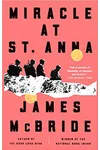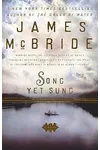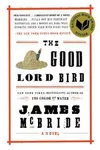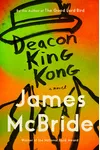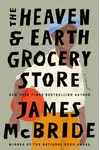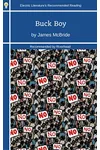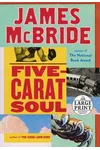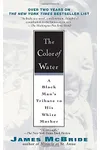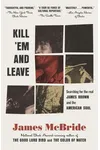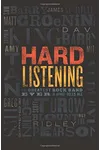Picture a storyteller who weaves history, humor, and heart into every page—meet James McBride! Born in Brooklyn, this literary powerhouse is a saxophonist, journalist, and author whose works, like the bestselling memoir The Color of Water and the National Book Award-winning The Good Lord Bird, capture the American experience with a rhythmic flair. McBride’s unique blend of music and prose makes his stories sing, inviting readers into worlds where race, identity, and community collide.
From his roots in Red Hook’s housing projects to his celebrated career, McBride’s journey is as vibrant as his writing. Let’s dive into the life and legacy of this multifaceted artist who’s been charming readers and listeners alike for decades.
The Making of James McBride
Born on September 11, 1957, in New York City, James McBride was the eighth of twelve children in a bustling, biracial family. His mother, Ruth, a Jewish immigrant from Poland, and his African American father, Rev. Andrew McBride, shaped a home filled with love and resilience despite poverty. Raised in Brooklyn’s Red Hook, McBride’s curiosity about his mother’s pale skin sparked questions that later fueled his memoir. After his father’s death before his birth, his mother’s determination sent all her children to college.
Music and writing became McBride’s outlets. He studied composition at Oberlin Conservatory, later earning a journalism master’s from Columbia University. His early career as a reporter for The Washington Post and People honed his storytelling, but music—playing tenor sax with jazz legends like Little Jimmy Scott—gave his words a soulful rhythm. This duality set the stage for his literary breakthrough.
James McBride’s Unforgettable Stories
McBride’s 1995 memoir, The Color of Water: A Black Man’s Tribute to His White Mother, is a literary classic, selling over two million copies and spending two years on The New York Times bestseller list. Alternating between his childhood and his mother’s journey from Poland to Brooklyn, it explores race, identity, and family with raw honesty and humor. Its universal themes resonate in classrooms worldwide.
His fiction is equally compelling. Miracle at St. Anna (2002), a novel about Black soldiers in World War II, became a 2008 film scripted by McBride and directed by Spike Lee. The Good Lord Bird (2013), a rollicking tale of abolitionist John Brown, won the National Book Award for its bold mix of history and satire. Deacon King Kong (2020), an Oprah’s Book Club pick, paints a vivid Brooklyn community with warmth and wit, while The Heaven & Earth Grocery Store (2023) unearths secrets in a diverse Pennsylvania town, earning the Kirkus Prize.
McBride’s style—infused with musicality, humor, and empathy—bridges historical and personal narratives. His themes of race, community, and human connection shine through, making complex histories accessible and deeply human.
Why James McBride Matters
McBride’s work transcends literature, sparking conversations about race and identity in America. His ability to humanize history, as seen in The Good Lord Bird or The Color of Water, earned him the 2015 National Humanities Medal from President Obama for “humanizing the complexities of discussing race.” His stories amplify marginalized voices, fostering empathy across cultures.
As a musician and writer, McBride’s legacy is one of connection. Whether through his saxophone or his pen, he builds bridges, reminding us of our shared humanity. His influence in literature and cultural discourse continues to grow, inspiring readers and writers alike.
About James McBride
- Born: September 11, 1957, Brooklyn, New York
- Key Works: The Color of Water, The Good Lord Bird, Deacon King Kong, The Heaven & Earth Grocery Store
- Awards: National Book Award (2013), National Humanities Medal (2015), Kirkus Prize (2023)
- Fun Fact: He’s a self-proclaimed terrible dancer!
Snag The Color of Water or Deacon King Kong and dive into James McBride’s soulful, history-rich world! His stories will make you laugh, think, and maybe even hum along.
